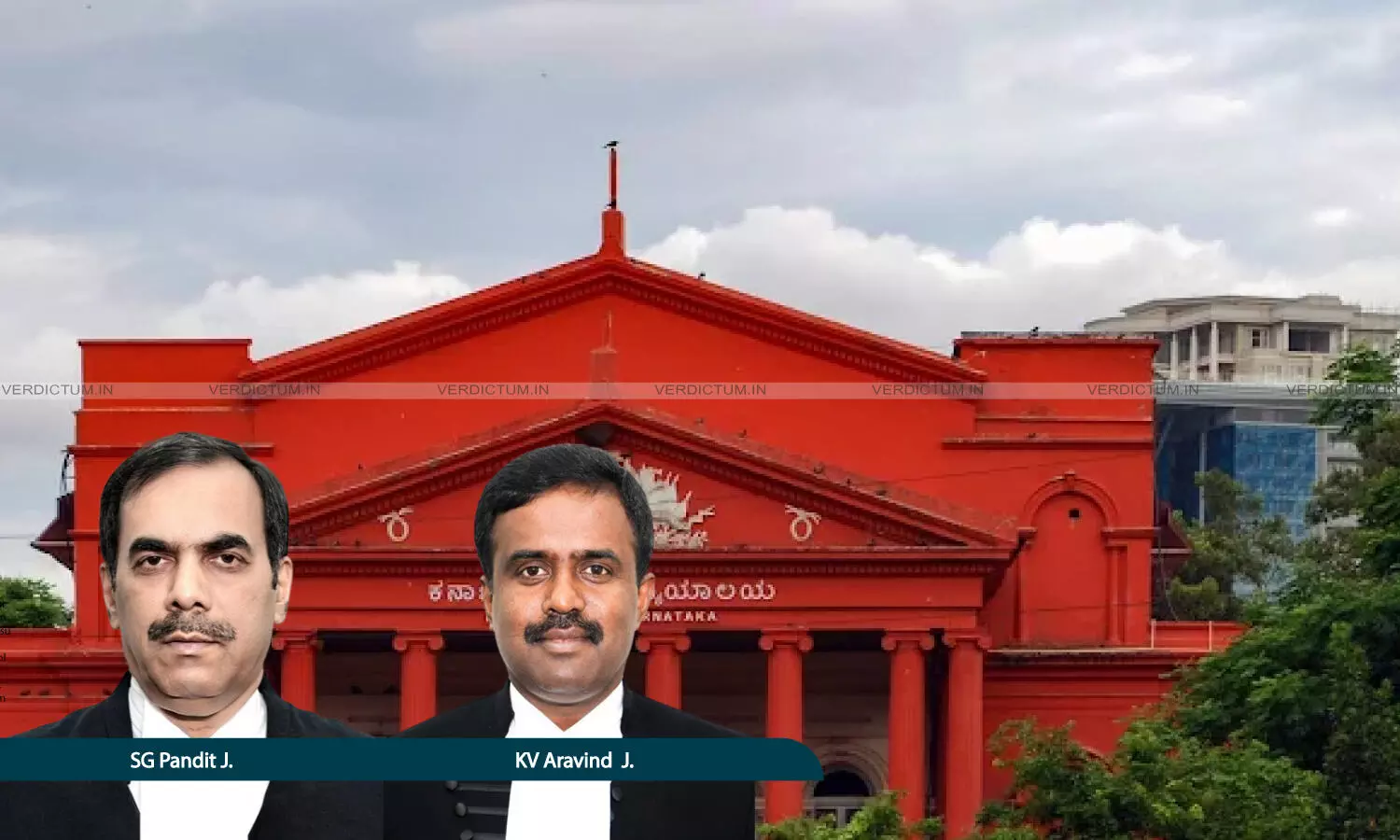
Transfer Based On MLA’s Recommendation Does Not Automatically Vitiate The Transfer Order: Karnataka High Court
 |
|The Court held that a transfer order issued following the recommendation of an MLA cannot be invalidated solely on that basis unless malafides, statutory violations, or lack of jurisdiction are established
The Karnataka High Court has dismissed a writ petition challenging a transfer order wherein the petitioner had alleged that the transfer was arbitrary and made solely at the behest of a local MLA, contending that it violated statutory guidelines and amounted to malice in law.
The petition was filed under Articles 226 and 227 of the Constitution of India, challenging the order passed by the Karnataka State Administrative Tribunal (KSAT), which had dismissed the petitioner’s plea against the transfer notification.
A Division Bench of Justice S.G. Pandit and Justice K.V. Aravind observed: “In the facts and circumstances of the case, particularly in view of the fact that we have come to the conclusion that the transfer at the instance or recommendation of an MLA itself would not vitiate the transfer, the said contention is untenable.”
Advocate Jayanth Dev Kumar appeared for the petitioner, while Reuben Jacob, AAG, represented the respondents.
Background
Following a dispute between the petitioner and a local MLA during a Bagar Hukum Committee meeting, tensions arose over certain administrative decisions taken by the petitioner in his official capacity.
The MLA subsequently addressed a detailed letter to the Revenue Minister, alleging that multiple public complaints had been received regarding the petitioner’s conduct and functioning in the region. In the letter, the MLA specifically recommended the petitioner’s transfer, citing administrative inconvenience and dissatisfaction among residents.
Acting upon this recommendation, the Revenue Department initiated the process and issued an order transferring the petitioner to another posting while simultaneously appointing another officer to his position.
Aggrieved by the transfer order, the petitioner approached the Karnataka State Administrative Tribunal (KSAT), seeking to have the notification quashed. The KSAT, however, dismissed the application, observing that the competent authority had acted within its jurisdiction and that the transfer order had received due administrative approval.
Dissatisfied with the Tribunal’s findings, the petitioner approached the Karnataka High Court by way of the present writ petition, challenging the validity of both the transfer order and the KSAT’s decision.
Court’s Observations
The High Court noted that transfers are "an incident of service" and generally fall within the administrative discretion of the State, provided they adhere to statutory guidelines.
Referring to Clause 5(3) of the Government Order governing transfers, the Court highlighted that in cases involving special or exceptional reasons, transfers may be carried out with the approval of the Chief Minister. Since the note sheets on record indicated that such approval was obtained in this case, the Court found no procedural irregularity.
Dismissing the contention the Group A officers are provided with a minimum tenure of two years, the Bench observed: "where a complaint of serious nature is received against a government servant or ascertained that the charge memo/chargesheet has been issued to the government servant or it is ascertained that the permission has been given for prosecution in a competent Court of law, the transfer could be considered beyond the period of General Transfers."
The Court further relied on the Supreme Court’s ruling in Mohd. Masood Ahmad v. State of U.P. to affirm that MLA recommendations cannot automatically invalidate transfers unless the petitioner demonstrates mala fides, violation of statutory rules, or lack of competence on the part of the authority.
"When the people express their grievances before their representative, it is the duty of the representative of people to request for transfer of such government servant and the State Government, certainly within its jurisdiction, could transfer such a government servant", the court concluded.
Conclusion
Dismissing the petition, the High Court upheld the petitioner’s transfer, holding that MLA-backed recommendations, when duly approved and justified on administrative grounds, do not vitiate transfer orders.
The Court concluded that no malafides, procedural lapses, or statutory violations had been established in this case. Stating that “In the above circumstances, we do not find any error or illegality in the order passed by the Tribunal”, the court dismissed the petition.
Cause Title: S. Venkateshappa v. State of Karnataka & Ors.
Appearances
Petitioner: Advocate Jayanth Dev Kumar
Respondents: AAG Reuben Jacob with AGA V. Shivareddy; Senior Advocate Uday Holla.